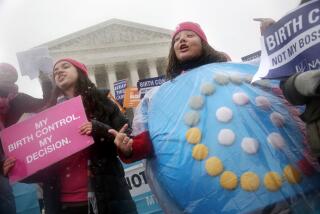Don’t Expect Too Much, Bald People Warned : Panel Backs Approval of Hair Grower
- Share via
WASHINGTON — A government advisory panel Monday recommended approval of the first drug shown to make hair grow on bald men, but with the provision that doctors be instructed to tell their patients not to expect miracles.
The panel of outside experts told the Food and Drug Administration it expects the agency to monitor advertising of the product to make sure the manufacturer, Upjohn Co., does not overstate what the hair grower can be expected to do.
Although an advisory committee’s recommendation is not binding on the FDA, the agency usually follows such advice. C. C. Evans, the physician who heads the FDA’s dermatology section, said he expects the Upjohn drug to be approved in a few months.
Sold in Canada
The Michigan company has been selling the drug--minoxidil--in Canada under the trade name Regaine since last October and plans to market it in the United States as Rogaine.
A one-month supply has been selling in Canada for about $45 in U.S. equivalent currency, but Upjohn officials refused to say how much it will cost in this country. To be effective, the prescription drug must be taken indefinitely. If it is discontinued, the hair it has stimulated falls out.
Minoxidil has been used in tablet form for about 20 years as a treatment for high blood pressure, and the side effect of hair growth was noted in some patients. The hair-growth version is in ointment form and only 2% of the strength of the pill.
In reaching a unanimous decision to recommend approval, the five-member panel accepted Upjohn’s finding that minoxidil does stimulate hair growth and is relatively safe.
Panelists Skeptical
However, the four-hour discussion that led to the decision included skepticism over how much hair minoxidil can grow. The consensus was that because the drug is unlikely to have serious side effects and can help some people, there is no reason to keep it off the market.
Upjohn officials acknowledged in their presentation to the panel that clinical trials indicated that no more than half the people being treated with the drug experienced significant hair growth and that the result varied widely with age.
For example, only 26% of the men in the 40-49 age group registered significant growth, while 54% of those under 30 showed similar gains.
More to Read
Sign up for Essential California
The most important California stories and recommendations in your inbox every morning.
You may occasionally receive promotional content from the Los Angeles Times.













